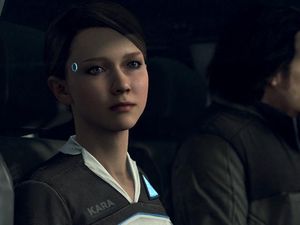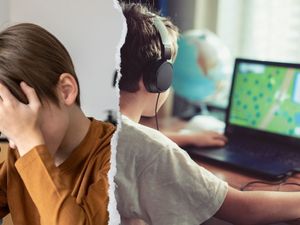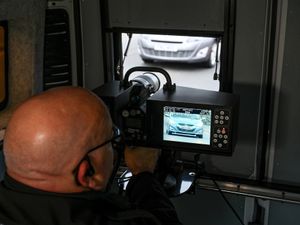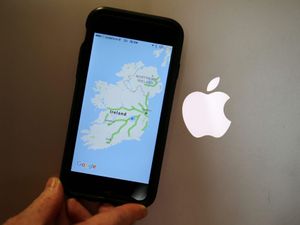Detroit: Become Human writer hopes game sparks debate on tech’s influence
Quantic Dream writer Adam Williams discusses how AI is changing society.

One of the creators of upcoming sci-fi game Detroit: Become Human believes artificial intelligence will have “unintended consequences” on society as it becomes increasingly part of daily life.
The near-future interactive story sees players take on the role of three androids who rebel in a world where robots are near-slaves but are persecuted by much of the general population.
“Although there’s a sci-fi conception in the story, we really wanted to use androids as a placeholder or metaphor for any persecuted group,” he told the Press Association.
“So in that sense, it’s a way of getting into this conversation about a divided society and how technology is affecting the way we relate to each other – which are two questions that are not just in our future I think, they’re in our present.
“Technology always affects us in ways we didn’t intend. No-one designed games consoles thinking they were going to change the way we related to each other fundamentally, and that’s what has happened in the world of Detroit – these androids have been manufactured, they sounded like a great idea – they’ve had those unintended consequences.
“I think we’re already living in the time of the game in a way because these are the issues that face us today.”

However, how players interact with the world around them, such as choosing to search certain rooms or how they interact with other characters, can also open up other dialogue strands and story routes within the game’s labyrinth narrative.
Williams said the intention of the game is not to push a viewpoint on technology or society on the player, but let them explore those themes for themselves.
“When you’re writing an interactive story, I don’t think it’s your job as a writer to tell the player what to think about the story because it stops being interactive at that point,” he said.
“They’re no longer writing their own story, they’re experiencing the one you’ve written and that’s what linear mediums – TV and cinema – are for.
“We had an advantage in this, I think, in that the question of the game – this one around deviancy – whether it’s the social question of prejudice or the technological question of man and machine, that deviancy question remains unanswered in the society we live in now.

He added that the pace of change and public embrace of artificial intelligence meant society has had few chances to fully learn about and understand it, and that too was a question the game hoped to create debate around.
“I think what worries me about it (AI) the most is the fact that we’re already living in it so we haven’t had the benefit of other generations that could look ahead to a future where man and machine are increasingly integrated and say I wonder what that will be like?,” he said.
“There are people in the AI field who think there are going to be huge opportunities with AI and even if it becomes conscious, it’s another intelligence to commune with. Then there are others who say this is going to be dystopian, we need to start preparing for it now or it’s going to be like Terminator.
“The fact that the people closest to it don’t know suggests to me that nobody knows. Imagine when Ford was manufacturing the first cars, if someone said ‘is this going to be a good or bad thing for society’, he would have had no idea and we still don’t really know now whether we are better off by virtue of having a car or not.
“One of the themes of the game is technology always has unintended consequences.”
Detroit: Become Human is out on May 25.





